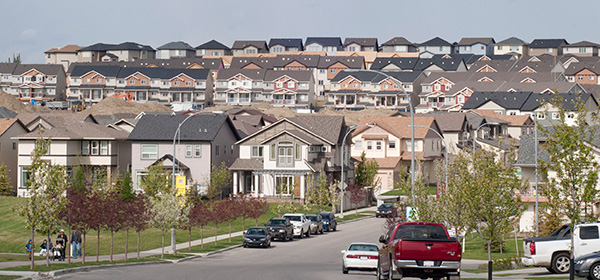
Aug. 29, 2012 | Cody Stuart
Calgary's Demanding Demographics
Demographic forces will continue to play an important role in supporting demand for real estate in Calgary and nationwide, says a new report from one of Canada's major banks.Entitled Canadian Housing: Demographically Dangerous, the report from CIBC Economics highlights the growth in the number of Canadians aged 25 to 34 – the group that, according to CIBC, accounts for the vast majority of first-time homebuyers.
In the report from CIBC Economics, CIBC economist Benjamin Tal said fears of a softening housing market have been "highly exaggerated."
"[There are reports] saying that the market is going to soften in the next 10 years, but this is something that I don't buy," said Tal. "It's based on Statistics Canada's current projections, which I don't think take into account the significant change in terms of immigration into the province, and even people coming from other provinces coming to Alberta."
As Tal points out, Statistics Canada's current projections for Alberta's housing market suggests that demand will rise by just 0.3 per cent a year over the next decade after increasing by 2.5 per cent per year in the previous 10 years.
"This assumes that things will not change in Alberta, and I think that's very naïve assumption. I think that you will see more movement from province to another – especially in Alberta," said Tal. "So I don't buy this weakness, but that's what the numbers are telling us."
Those numbers, according to Statistics Canada, say Canada should expect a decline in the population of those aged 25 and under, and also in the 45 to 54 age group, and an increase in the number of Canadians aged 55 and up. However, as explained in the CIBC report, what counts is not only a change in population in any given age group, but the level of housing activity amongst that age group.
"While the projected 170,000 decline in the number of Canadians in the age group 20-24 in the coming decade is negative for housing demand, the low propensity to buy among this age group will limit the damage," stated the report. "At the same time, the growth in the number of Canadians in the age group 25-34, which accounts for the vast majority of first-time buyers, is projected to be much stronger. In other words, the group that is most likely to buy a house will grow faster in the coming decade."
Although the CIBC report does rank Alberta behind B.C., Ontario and even Manitoba in terms of projected housing demand, the report does concede that "stronger than currently projected" net migration could lead to stronger housing demand.
Statistics Canada's numbers for immigration to the province was more than 22,000 from January to March of 2012, more than double the increase during the same period of 2011, and significantly higher than any other province in Canada.
"That people are coming to Alberta shouldn't be a surprise," said ATB Financial economist Will van't Veld. "In fact, it's slightly more surprising that it took until the first quarter of 2012 to see the numbers really spike. The unemployment rate is not only well below the national average, but wages have been steadily climbing. In fact, the average weekly wage in Alberta is now $156 higher than in Ontario."
CIBC's stance on Alberta's housing market was recently reinforced with the release of a report from the Conference Board of Canada that said the short-term year-over-year price growth expectation for Calgary's resale housing market is between five and 6.9 per cent.
The single-family benchmark price in Calgary reached $432,400 in July according to CREB®, marking a 7.8-per-cent increase over 2011, but on average only five per cent higher on a year-to-date basis.
Both the condominium apartment and townhouse market recorded year-over-year benchmark price gains of nearly two per cent in July, for respective prices of $247,600 and $277,400.
"Despite global economic concerns, economic growth is strong in the city and the attraction of migrants has boosted housing sales activity this year," said CREB® economist Ann-Marie Lurie. "As long term prospects are strong in the region we anticipate these factors will continue to support growth in our housing sector."
In their recently released housing market update, CREB® predicted the number of single-family homes sales will hit 14,800 in 2012, up from 13,120 in 2011, with the average annual benchmark price for a single-family home climbing to $410,123.
Where do you think the Calgary housing market is headed over the next 10 years? S
Tagged: Calgary Real Estate | Calgary Real Estate News | Growth | Housing Market




